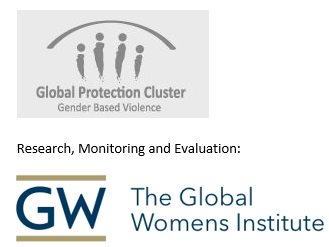- Early recovery after a conflict is defined as recovery that begins early in humanitarian settings, and is meant to stabilize an area and attend to underlying risks and contributing factors to the conflict. It includes the restoration of basic services, shelter, governance, economics and livelihoods, and security and rule of law (GBV Area of Responsibility).
- Addressing underlying causes of VAWG is crucial during the early recovery phase in order to empower women and address and shift the culture of violence against them. Early Recovery programmes should seek to not only meet the practical needs of women and girls (such as food, housing and healthcare), but also strategic needs (for example, equal access to employment) which assist in the empowerment and overall equality of women – a key step in ending the culture of violence.
- The GBV AoR tip sheet on Early Recovery provides guidelines and recommendations to prevent VAWG during the early recovery phase after a conflict.
Additional Tools:
See the early recovery cluster website.
For guidance in implementing gender-sensitive post-disaster needs assessments, including checklists for assessment planning and recovery planning, see: IASC Cluster Working Group on Early Recovery. 2010. Guide to Gender-Aware Post-Disaster Needs Assessment. New York: United Nations Development Programme. Also see Key Things ER Actors Need to Know About Gender.
For additional tools on how to integrate a gender perspective into a Post-Conflict Needs Assessment (PCNA), from the pre-assessment to the implementation and monitoring phases, see Maguire, S. & Anderlini, S. 2009. PCNA-TRF Tool Kit: Note on Integrating Gender Perspectives. New York: UNIFEM.
For additional tools related to Early Recovery needs assessments, funding, strategic frameworks, and thematic technical guidance, see the humanitarian info website.
